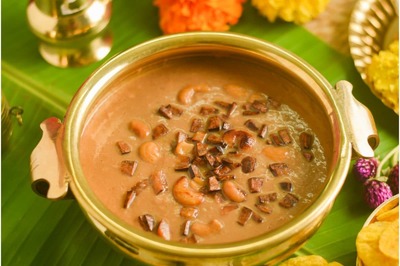
views
New Delhi: Impacted by note ban, retail inflation fell to multi-year low of 3.17 per cent in January and may prompt the Reserve Bank to have a re-look at its hawkish monetary stance in the next policy due in April.
Retail inflation has declined because of the impact of cash crunch following demonetisation of old Rs 500 and Rs 1,000 notes with effect from November 9, 2016, experts said.
In its policy last week, RBI retained the benchmark interest rate and changed the stance from 'accommodative' to 'neutral', indicating that there won't be any rate cut in near term. It may however have to review its policy stance in the wake of retail inflation touching multi-year low in January.
The last time inflation was this low in November 2014, at 3.30 per cent.
Retail inflation, measured in terms of Consumer Price Index (CPI), was at 3.41 per cent in December and 5.69 per cent in January 2016.
Inflation in vegetables was negative at (-)15.62 per cent from (-)14.59 per cent a month ago and for pulses and products, prices deflated by (-)6.62 per cent.
"The impact of note ban on demand is not pervasive across the sub-groups of CPI, with the effect being most apparent in decline in inflation for clothing & footwear, household goods & services, and personal care & effects," said Aditi Nayar Principal Economist, ICRA.
She said as crude oil prices have steadied in last few weeks, fuels are unlikely to put extra pressure on retail inflation in near term.
"In the less likely event that crude oil prices do spike in the next few months, the excise hikes undertaken previously by the government on petrol and diesel could cushion inflation, at the cost of lower revenues," Nayar said.
Among other data points, rate of price rise in fruits was higher at 5.81 per cent, fuel and light at 3.42 per cent. While inflation in meat and fish was 2.98 per cent. The core-CPI inflation, excluding food & beverages and fuel & light, inched higher to 5.1 per cent in January from 4.9 per cent in December.
"The stickiness in core inflation despite continued decline in other parts of the index is a worry since wage-price negotiations based on a sticky core can potentially lift overall inflation," Crisil Research said.
The consumer demand in the country has taken hit after the government decided to scrap old Rs 500 and Rs 1,000 notes, nearly 86 per cent of the total cash in circulation. Overall, Consumer Food Price Index was down at 0.53 per cent in January as against 1.37 per cent in December.
Rural retail inflation was at 3.36 per cent in January compared with 3.83 per cent preceding month. For urban sector, it was at stable at 2.90 per cent.



















Comments
0 comment